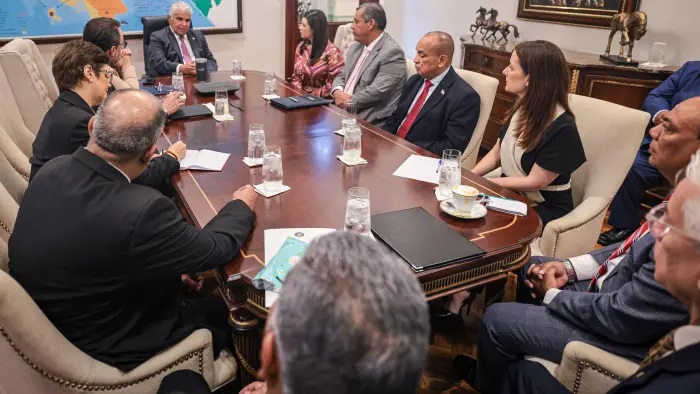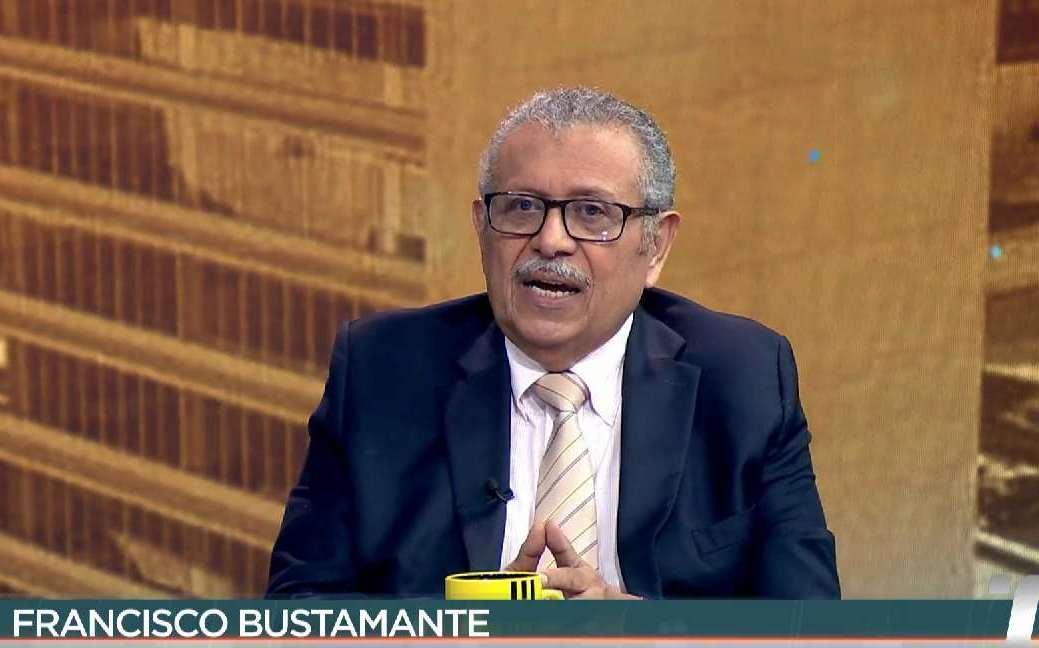The Panama Executive Branch will Create a Special Law for Banana Growers
Meeting between the National Assembly’s parliamentary leaders and President José Raúl Mulino, along with two of his cabinet ministers.

On the morning of May 20, a meeting was held between the heads of the different groups of the National Assembly and the President of the Republic, José Raúl Mulino. According to Janine Prado, a representative and leader of the Vamos coalition, this meeting discussed the current situation in the country and suggested that a call to evaluate a special law for the banana sector, which has been paralyzed since April 28, will likely be included in the extraordinary sessions.
“What the President told us was the specific issue of banana plantations with a special law, and for our part, we requested open dialogue so we could then review the amendments to Law 46-2,” Prado emphasized. The president of the National Assembly, Dana Castañeda, also participated in the meeting alongside the party leaders. The State Information Directorate detailed that this is a new bill on banana production that will include everything agreed upon during the 10 days of talks held by workers affiliated with the Union of Workers of the Banana, Agricultural, and Related Companies Industry (Sitraibana) with the Ministers of Labor and Labor Development, Jackelin Muñoz, and of Commerce and Industry, Julio Moltó.
“The special bill for the banana sector will be presented to the National Assembly for discussion during this extraordinary session,” the Executive branch revealed. Present at this meeting were representatives Alaín Cedeño, for Realizando Metas (Realizing Goals); Jorge Herrera, for Panameñismo (Panameñismo); Janine Prado, for the Vamos coalition; Javier Sucre, for the Democratic Revolutionary Party (PRP); Eliécer Castrellón, for the mixed Democratic bloc; Graciela Hernández, for Otro Camino (Another Way), and the president of the National Assembly, Dana Castañeda.

Former deputy director of the Social Security Fund (CSS), Francisco Bustamante, stated that Law 462, despite its limitations, is not bad legislation, but that the real problem is political. “As long as the ruling classes don’t assume their responsibility and show clear signs of wanting to change things, the conditions will be created for things to get worse,” he warned. Bustamante refuted false claims about the law, such as that a person would lose their contributions if they were unemployed for several years, that only one child could be insured, that death pensions would disappear, or that parents could no longer be insured. He emphasized that the lies against Law 462 have different components that are materialized in a widespread movement filled with malicious intent. He explained that the law respects the benefits of all those in the exclusive defined benefit system. Those who are not in the system are those over 55 years of age.
In the case of indigenous communities, he assured that the special laws protecting them are respected, and that teachers retain the Self-Funding Early Retirement Plan (PRAA), a fund that allows them to retire early, receive money in advance, wait four years, or receive a check for $120,000 or $140,000 and continue working. He explained that nearly 80% of educators choose to receive the money and continue working. “None of that was touched; it’s still there, it’s maintained, it’s respected,” he added. Bustamante also mentioned that construction workers have a unique status, as they work on projects and receive a significant sum at the end of each one. He clarified that the only group that has to work 30 years to achieve the 240 installments is construction workers, although they have not commented on this point. He expressed that there is great social resentment and deep mistrust toward the political class. “Now the government is faced with a dilemma: back down, sit down to negotiate, or move forward,” he said.





